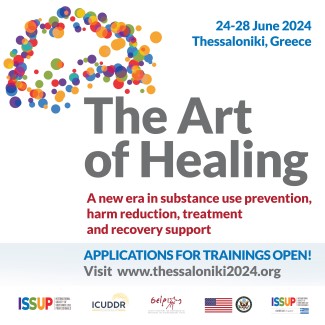O Evento Global ISSUP 2024 será realizado em Salônica, Grécia, entre os dias 24 e 28 de junho de 2024. A submissão de resumos está aberta até 31 de dezembro de 2023 e estamos convidando contribuições de profissionais de prevenção ao uso de substâncias, redução de danos, tratamento e apoio à recuperação, bem como aqueles que trabalham com populações vulneráveis. Seja você um acadêmico ou não, nós aceitamos suas submissões.
